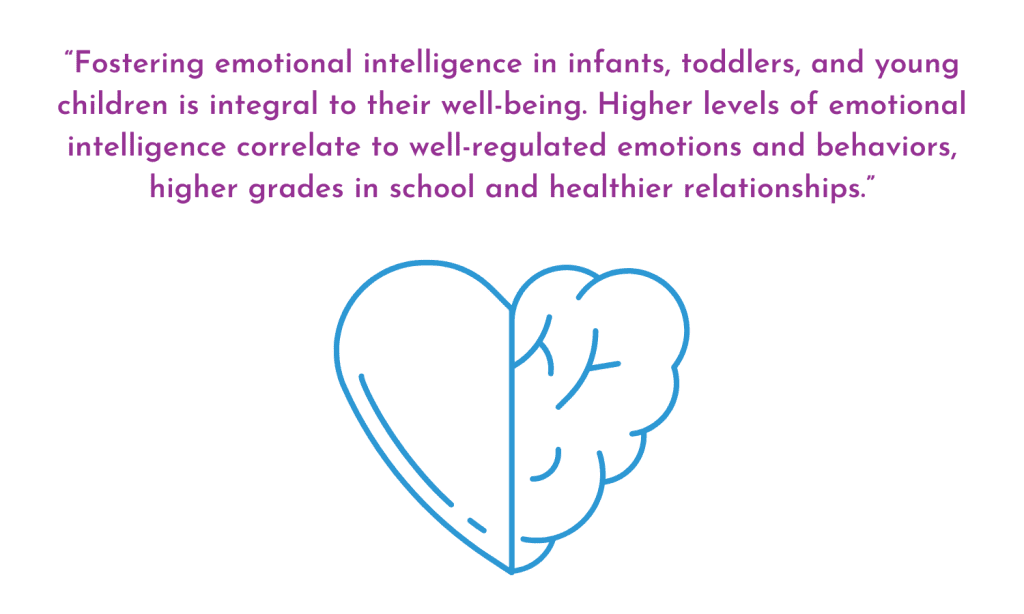Emotional intelligence skills include those that allow individuals to understand their own and others’ feelings. Individuals with high emotional intelligence can maintain positive relationships and possess a deeper sense of empathy. Fostering emotional intelligence in infants, toddlers, and young children is integral to their well-being. Higher levels of emotional intelligence correlate to well-regulated emotions and behaviors, higher grades in school and healthier relationships.
When working with infants and toddlers, having adults who are able to model emotional intelligence is the first step. Taking the time to recognize and label emotions is key in this process and can show little ones what emotional regulation looks like. Consistency, providing limited choices that are acceptable, and working to understand your toddler’s feelings are some key strategies for helping them stay calm and work through emotions. For more tips, click here.

When it comes to older toddlers and preschoolers, strategies include things such as the “mood meter” and storytelling. These strategies promote the recognition, understanding, labeling, expression, and regulation (RULER) of emotions. Click here to learn all about these strategies and more, including how to implement them.
It is never too early to start modeling for your child and teaching them about emotions! If you’re looking for more information, check out the resources below.
Social and Emotional Development for Infant/Toddlers | ECLKC (hhs.gov)
Emotional Literacy with Infants and Toddlers | ECLKC (hhs.gov)
19+ Innovative Ways to Teach Emotional Intelligence to Kids (positivepsychology.com)








